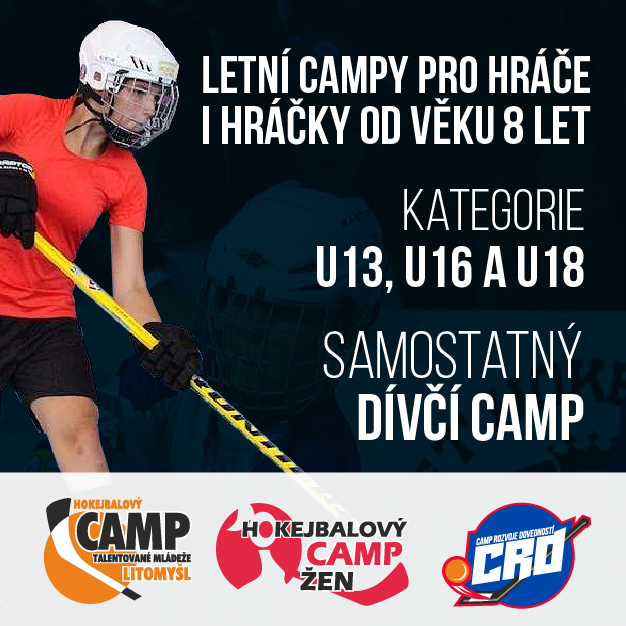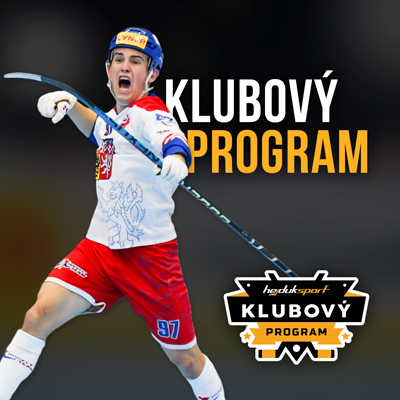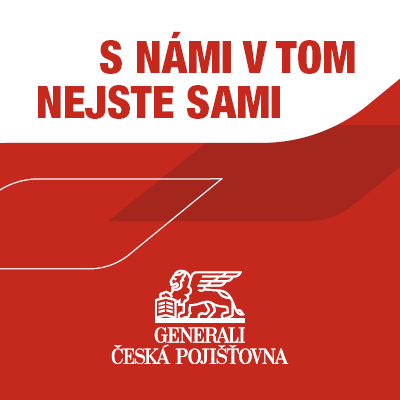Lubomír Liška Spends Two Days at U18 CTM Through Erasmus+ Sport

The European Union's Erasmus+ Sport program is already making a difference in supporting the education of coaches and referees. The head coach of the Slovak U18 national team, Lubomír Liška, attended the Talented Youth Camp (CTM) for U18 players. What did he think of the program?
“It’s a Great Honor for Me to Stand on the National Team Bench”
Coach, let’s start with a different topic. Let’s begin with the Slovak junior national team. How long have you been the head coach of the U18 team? How did you get into this role?
I’ve been the head coach of the Slovak U18 team for four years. Due to well-known circumstances (coronavirus, the conflict in Ukraine), international events were suspended, so I participated in two Junior World Championships (last year in Liberec and this year in Žilina). In the past, I was involved with the Slovak U16 team. I am also the chairman of the Coaching and Methodological Committee. It’s a great honor for me to stand on the national team bench and work with the best ball hockey players in Slovakia for each age group.
You have led your team through the last two Junior World Championships, in 2023 in Liberec and this year in Žilina, for U16 and U18 categories. How challenging was it to work with the team in such a short timeframe, especially given that Junior World Championships are not held that frequently?
We focus on preparation for the Junior World Championships in the season before the event, and more players were already in the broader squad for this year’s Žilina from the previous season. The preparation is certainly demanding; we managed to meet with the players in six training camps before the championship. Our task is to select players who will benefit the national team and, of course, elevate them to the required level.
However, you faced some setbacks. In Liberec, you lost to the Czechs in the final, and in Žilina, our ball hockey players beat you for the bronze. What’s your perspective on this? Is there a sense of frustration from the home championship, where you had strong motivation?
I don’t believe in fate. In past championships, we had excellent results; it was no coincidence that we won the group stage, beat Canada twice, and made it to the final. The final was decided by a single player from the opposing team; otherwise, we had the better team, which we clearly proved by beating the Czechs in the group stage (6:0). This year, we again lost our last game of the tournament, and the teams in the world’s top four are extremely evenly matched. It could have gone either way; we were just a step away. I am convinced that together with the coaching staff, we did everything possible for a medal. It’s disappointing that it didn’t work out. Sometimes, even through such losses or failures, you can push yourself to a higher level and better prepare for future top events. We must not only look at the overall result. The journey, determination, and perseverance are crucial in the long term. I believe that more players from this year’s team will succeed in sports or life.
“I’m Very Happy That Such a Program Exists”
Can you compare the junior prospects from different countries? I’m talking about Slovakia, the Czech Republic, Canada, the USA, and Switzerland. How big are the differences, and where do you think the best work with youth is being done?
Slovakia, the Czech Republic, Canada, and the USA are still “a step ahead” in performance. Switzerland is slowly catching up, and I think they might surprise in upcoming tournaments, as they have already shown in the men’s category. Canada and the USA have a vast base. Although ball hockey is certainly not among the most popular sports in these countries, hockey players enjoy playing it as a supplement and take it very seriously. Most players from both overseas teams play in the top hockey leagues in the USA and Canada, and they definitely don’t come to Europe for the World Championships just for a trip. They always have high goals and want to prove that they are the best. The Czech Republic undoubtedly works best with youth. Continuous, honest work pays off, and I’m not just saying that because of the World Championship titles but also because of the overall player base, youth work in clubs, development camps, and recruitment events. In Slovakia, ball hockey has a tradition. In terms of conditions, the number of rinks, clubs, or overall base, it’s hard for us to compare with the Czech Republic. If we don’t find resources in the near future, including more passionate people for the development of ball hockey, it will be challenging to keep up with the best teams.
You had the opportunity to observe this topic more closely at the U18 Talented Youth Camp (CTM) held in Česká Třebová. You attended through the Erasmus+ Sport program to support the education of coaches and referees. What was your goal at CTM? Were you there just to observe, or did you also share your experiences with the players and other coaches?
I’m very happy that such a program exists and that I had the opportunity to participate. I was glad to get a closer look at the level of your camps, and I was also pleased that I could share my experiences with the participating players. I attended some of the training sessions and led two of them. I was very impressed with the level and overall organization of the camp. You have a truly top-notch team of people leading ball hockey youth in all areas. What’s essential is that it wasn’t just about ball hockey but also in areas like conditioning, physiotherapy, and recovery, with maximum care provided for the players. The camp’s staff consisted of 10 coaches and managers who worked with over 60 players and goalkeepers.
I have to ask: How big of a difference do you see between the development of Czech and Slovak ball hockey players? In the Czech Republic, CTM camps and other training camps are popular, and we also emphasize youth leagues. Is there a similar CTM format in Slovakia?
The development of ball hockey players in Slovakia is significantly different; again, I have to come back to the conditions we have in Slovakia. The base isn’t large, which can be seen in the number of teams registered for competitions and the participation in the Slovak Cup. There aren’t many ball hockey rinks, and often there’s a lack of facilities and people. We are very happy that ball hockey continues in Nitra, Zohor, Vranov, Poprad, and Prešov. Important places on the Slovak ball hockey map also include Považská Bystrica and Martin. We see potential in other clubs, especially in eastern Slovakia. We need more clubs where systematic work will take place. We would love to organize summer camps and certainly take inspiration from you. We are very happy that club summer camps are working in Nitra, Poprad, Skalica, and Vranov. The goal for next summer will be to organize national skill camps.

“We Are Definitely Open to Further Cooperation and Visits”
Did any Slovak juniors participate in the camp? Unfortunately, I don’t have that information, so I’m curious. And how do you view CTM from your perspective? It’s hard to judge after just two days, I imagine.
We are very glad that our Slovak juniors also had the opportunity to participate in CTM. They enjoyed it very much, even though it was physically demanding. As I mentioned, CTM is a great idea, but what’s even more important is that CTM is exceptionally well-organized—you have truly talented people who form a great team, and the players feel that too, which is also one of the prerequisites for the individual development of a player. In two days, I managed to observe, get to know, and exchange experiences not only with the conditioning coaches but also with physiotherapists.
What do you think about the Erasmus+ Sport project, which the Czech and Slovak ball hockey associations undertook together? What kind of opportunity is this for Czech and Slovak ball hockey? It certainly allows for the exchange of experiences and perhaps a better understanding of other aspects of two ball hockey powerhouses.
I think we have a real opportunity to push not just our own but also world ball hockey a bit further. On the field—in matches, we can be rivals, but when it comes to raising the next generation of ball hockey talent, it will be great if we continue to collaborate. I believe we can set this up correctly and offer a suitable, friendly environment for nurturing the next generation.
Do you plan to come to the Czech Republic again as part of the project and talk with Czech coaches? Is there any plan for a Czech visit to Slovakia?
We are definitely open to further cooperation and visits. In the fall, we plan to open additional coaching courses and seminars, for which we plan to invite Czech ball hockey experts, and we also hope to invite colleagues from the Czech Republic to the “Slovak CTM” next summer.




